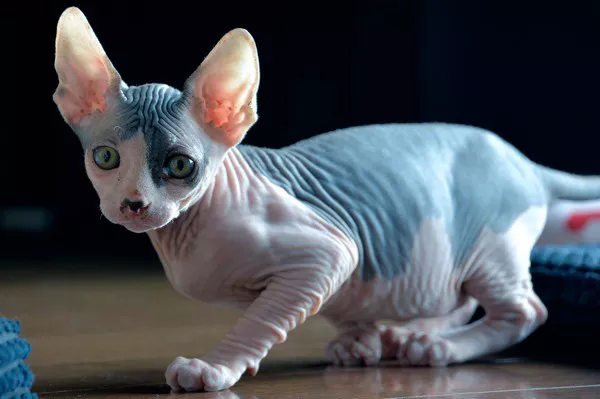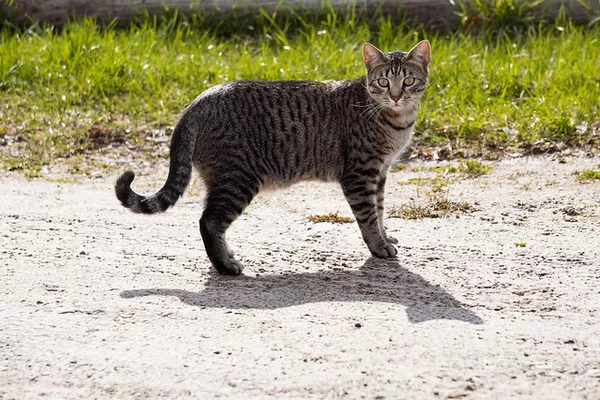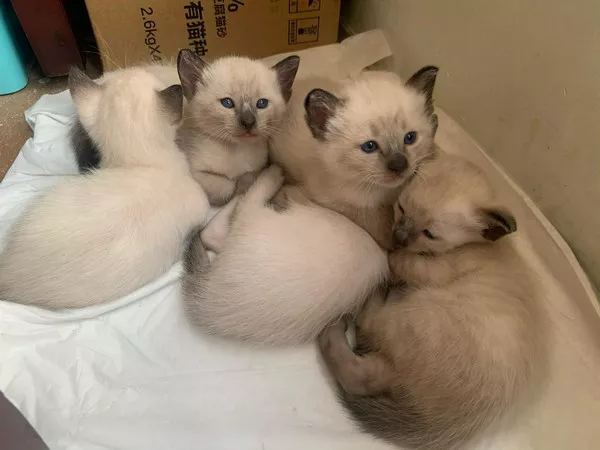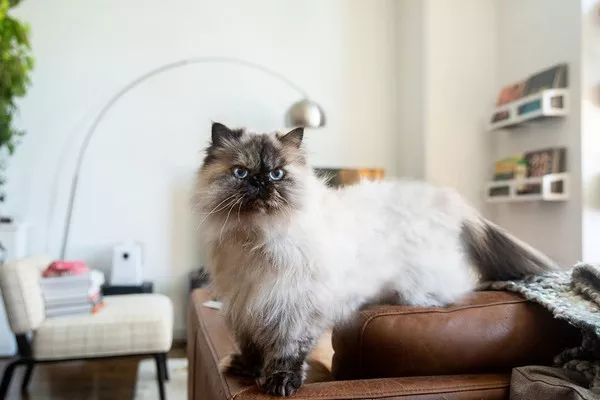The Sphynx cat, with its distinctive hairless appearance and lively personality, is a captivating breed that has garnered a devoted following among cat enthusiasts. These unique felines require special care, including a tailored approach to their diet. If you’re the proud owner of a Sphynx cat or considering adopting one, you may be wondering, “How much should I feed my Sphynx cat?” In this comprehensive guide, we will explore the dietary needs of Sphynx cats, factors influencing their food requirements, and tips for maintaining their health and well-being through proper nutrition.
Understanding Sphynx Cat Nutritional Needs
Before determining how much to feed your Sphynx cat, it’s essential to understand their specific nutritional requirements. Like all cats, Sphynx cats are obligate carnivores, which means they rely primarily on animal-based proteins for their dietary needs. Their bodies have evolved to efficiently digest and extract nutrients from meat.
Here are some key nutritional factors to consider when planning your Sphynx cat’s diet:
Protein: Sphynx cats require a diet rich in high-quality animal protein to support their active metabolism and muscle maintenance. Look for cat food products with protein sources like chicken, turkey, or fish listed as the main ingredient.
Fat: Healthy fats are essential for providing energy and maintaining skin and coat health in Sphynx cats. Adequate fat levels also contribute to overall palatability. High-quality cat food products will contain a balanced amount of fat.
Carbohydrates: While Sphynx cats do not require carbohydrates in large quantities, some carbohydrates, such as those from vegetables, can provide valuable nutrients and fiber. Ensure that carbohydrates are a minor component of their diet.
Minerals and Vitamins: Sphynx cats need a range of essential minerals and vitamins, including calcium, phosphorus, potassium, and taurine, for proper growth and overall health. A complete and balanced cat food will contain the necessary vitamins and minerals.
Hydration: Proper hydration is crucial for Sphynx cats. Their lack of fur makes them susceptible to temperature changes, which can lead to increased water loss through their skin. Make sure your cat has access to fresh, clean water at all times.
Factors Influencing Sphynx Cat Feeding Requirements
Sphynx cats have unique characteristics and traits that can influence their feeding requirements. Understanding these factors will help you determine how much to feed your Sphynx cat effectively:
Age: A Sphynx cat’s age plays a significant role in their dietary needs. Kittens require more calories and nutrients for growth, while adult cats need a balanced diet to maintain their health. Senior Sphynx cats may have different dietary requirements due to age-related changes.
Activity Level: Sphynx cats are known for their playful and active nature. An active cat will typically require more calories than a sedentary one. Adjust your cat’s daily caloric intake based on their activity level.
Body Condition: Regularly assess your Sphynx cat’s body condition to ensure they are neither overweight nor underweight. A healthy weight is essential for their overall well-being. Consult with your veterinarian if you’re unsure about your cat’s body condition or nutritional needs.
Neutering/Spaying: Neutered or spayed Sphynx cats may have slightly different nutritional requirements than intact cats. Consult your veterinarian for guidance on feeding altered cats.
How Much to Feed Your Sphynx Cat
Determining the exact amount of food to feed your Sphynx cat can be challenging, as it depends on various factors, including their age, weight, activity level, and the specific cat food you choose. However, you can use the following general guidelines to help you get started:
Read the Feeding Recommendations: Most commercial cat food products provide feeding guidelines on the packaging. These guidelines typically recommend serving sizes based on the cat’s weight and age. Start with these recommendations as a baseline.
Monitor Your Cat’s Weight: Keep a close eye on your Sphynx cat’s weight and body condition. If they are gaining weight and becoming overweight, you may need to reduce their daily food intake. Conversely, if they are losing weight or appear undernourished, consider increasing their food portions.
Divide Meals: Divide your Sphynx cat’s daily food allowance into multiple meals throughout the day. This helps prevent overeating and supports better digestion. Cats are natural grazers, and small, frequent meals mimic their natural feeding behavior.
Choose High-Quality Cat Food: Select a high-quality cat food that meets the nutritional needs of Sphynx cats. Look for products with real animal protein sources as the main ingredient and avoid those with excessive fillers and artificial additives.
Consult Your Veterinarian: Your veterinarian is your best resource for determining the precise feeding requirements of your Sphynx cat. They can assess your cat’s overall health, provide tailored dietary recommendations, and make adjustments as needed.
Special Dietary Considerations
Some Sphynx cats may have unique dietary needs or sensitivities that require special consideration. Here are a few situations in which you may need to make adjustments to your cat’s diet:
Food Allergies or Sensitivities: If your Sphynx cat exhibits signs of food allergies or sensitivities, such as skin issues or gastrointestinal problems, consult your veterinarian. They can recommend hypoallergenic or limited-ingredient diets to address these issues.
Weight Management: If your Sphynx cat is overweight or obese, your veterinarian may prescribe a weight management plan that includes a specific diet and portion control. Follow their guidance to help your cat achieve a healthy weight.
Medical Conditions: Sphynx cats, like all breeds, can develop medical conditions that require dietary modifications. Conditions such as diabetes, kidney disease, or urinary tract issues may necessitate a specialized diet.
The Role of Treats
Treats can be a fun way to reward your Sphynx cat and strengthen your bond with them. However, it’s crucial to offer treats in moderation and choose high-quality, nutritious options. Overindulgence in treats can lead to weight gain and disrupt your cat’s balanced diet. Be mindful of the number of treats you give and consider using them as part of your cat’s overall daily calorie intake.
Conclusion
Feeding your Sphynx cat a balanced and appropriate diet is essential for their health and well-being. Remember that there is no one-size-fits-all answer to the question, “How much should I feed my Sphynx cat?” Instead, consider their age, activity level, body condition, and any special dietary needs when determining their daily food intake. Regular communication with your veterinarian and careful monitoring of your cat’s weight and health will help ensure that your Sphynx cat enjoys a long, healthy, and happy life with you as their loving companion.



























